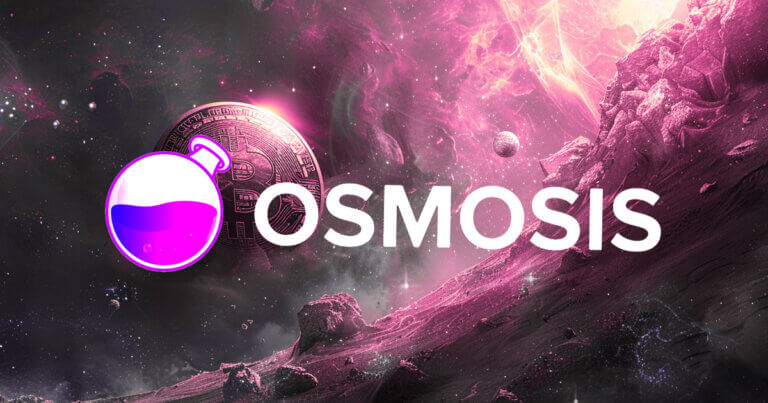 Nomic and Osmosis waive BTC bridging fees in landmark DAO-to-DAO partnership
Nomic and Osmosis waive BTC bridging fees in landmark DAO-to-DAO partnership Nomic and Osmosis waive BTC bridging fees in landmark DAO-to-DAO partnership
A proposal for protocol revenue sharing between Nomic and Osmosis has been approved.

Cover art/illustration via CryptoSlate. Image includes combined content which may include AI-generated content.
Following a successful DAO vote with 99.6% approval, Nomic, which offers a decentralized, non-custodial Bitcoin bridge to IBC-enabled chains like Osmosis, aims to enhance Bitcoin liquidity on the Osmosis platform. This proposal involves waiving Bitcoin bridging fees for transactions originating or terminating on Osmosis. In exchange, a portion of the taker fees from trading nBTC or its derivatives on Osmosis will be shared with Nomic.
Sunny Aggarwal, co-founder of Osmosis, expressed strong support for the proposal, highlighting its potential to revolutionize revenue models for crypto bridges. Aggarwal noted that this collaboration aligns the interests of both Osmosis and Nomic, aiming to reduce friction for users onboarding BTC to Osmosis. He stated,
“Instead of gouging users on entering Osmosis, both Osmosis and Nomic have the same goal now: Maximize trading volume of BTC on Osmosis.”
Aggarwal emphasized the broader implications of this agreement, suggesting it could serve as a model for future DAO-to-DAO partnerships. He described the deal as potentially one of the most significant in the crypto space, saying, “This opens a whole new revenue model for bridges as a whole.” By fostering an environment where bridging partners remain profitable while minimizing user fees, Aggarwal believes this proposal successfully aligns the long-term incentives of both platforms.
Nomic’s nBTC, a Bitcoin-backed asset, is live on Osmosis. Users can deposit BTC directly within the Osmosis app to receive nBTC. To ensure controlled growth, Nomic currently limits capacity to 21 BTC, charges a deposit fee of 1%, and imposes an IBC transfer fee of 0.5%.
When a trade occurs on Osmosis, the protocol charges a taker fee, typically set at 10 bps. For trades involving nBTC, Nomic will receive 10% of the total taker fees. If the trade involves alloyed BTC, of which nBTC is a component, Nomic will receive a share proportional to nBTC’s composition. For instance, if nBTC constitutes 40% of the allBTC alloy, Nomic will receive 4% of the taker fee.
The accrued fees will periodically be transferred to Nomic as nBTC and distributed according to Nomic’s regular protocol revenue mechanisms.
As part of this agreement, Osmosis users will not be charged bridging fees for depositing BTC via Nomic or transferring nBTC between Nomic and Osmosis. This fee exemption applies when Osmosis is the terminating chain, and the transaction is processed through Nomic. However, transactions from Nomic to other chains will still incur fees unless similar agreements are approved by Nomic governance. A flat Bitcoin miner fee may still apply for withdrawals to Bitcoin to cover gas fees.
To prevent Osmosis from becoming a routing chain for nBTC and to retain Nomic as the routing hub across the Cosmos Ecosystem, IBC middleware will block nBTC transfers from Osmosis to other chains except Nomic.
This mechanism will be implemented during a future software upgrade, which was contingent on approval by both Nomic and Osmosis governance. If only one side approved, the mechanism may still have been implemented on the approving chain, potentially with different parameters or alternative parties. The benefits will be activated synchronously on both chains following the proposal after the software upgrade.
This proposal, which passed on both Nomic and Osmosis forums, marks a significant step in DAO-to-DAO collaborations within the crypto ecosystem. It aligns the incentives of both platforms to maximize BTC trading volume on Osmosis.




 Arkham Intelligence
Arkham Intelligence 

 Farside Investors
Farside Investors 
 CryptoQuant
CryptoQuant 
 CoinGlass
CoinGlass 




































































































